Search Results
Showing results 1 to 20 of 42
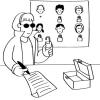
Public Key Encryption: Kid Krypto
Source Institutions
In this activity, learners conduct a simulation exercise related to public key encryption and try to intercept a message sent between two learners.
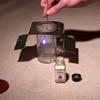
Collect Oxygen Over Water
Source Institutions
In this activity, learners use a pneumatic trough (see related activity) to generate and collect pure oxygen.
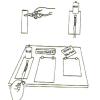
How Far?
To learn how friction affects motion, learners build a measurement tool from a rubber band and other simple materials.
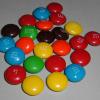
Radioactive Decay of Candium
Source Institutions
In this simulation, learners use M&M™ candy to explore radioactive isotope decay.
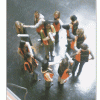
Running in Circles
Source Institutions
In this group activity, learners use some common objects and work together to simulate the Coriolis effect. During the challenge, learners make predictions and test different scenarios.

Scaling an Atom
Source Institutions
In this activity, learners make a scale model of an atom to see how big or how small an atom is compared to its nucleus. Learners will realize that most of matter is just empty space!
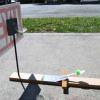
Parabola Basketball
Source Institutions
In this activity, learners build mini-basketball courts and explore the laws of physics. Learners discover that everything you throw or shoot on earth travels in a parabola.
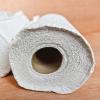
Paper Towel Strength
Source Institutions
In this activity, learners will test the strength of different brands of paper towels.
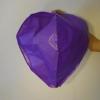
Hot Air Balloon
Source Institutions
In this activity, learners build a hot air balloon using just a few sheets of tissue paper and a hair dryer.
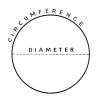
Pi Graph
Source Institutions
In this activity, learners use a straight line to learn about circles. Learners measure and record the diameter and circumference of different sized cylindrical objects on a chart.
Up, Up and Away with Bottles
Source Institutions
In this activity, learners make water rockets to explore Newton's Third Law of Motion. Learners make the rockets out of plastic bottles and use a bicycle pump to pump them with air.

Guar Gum Slime
Source Institutions
In this activity, learners create a gelatinous slime using guar gum powder and borax. Educators can use this simple activity to introduce learners to colloids.
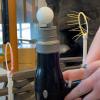
Bernoulli Obstacle Course
Source Institutions
In this activity, learners create their own obstacle course based on Bernoulli's Principle and try to get a floating ball from the start of their course to the finish line.

Learning the Land
Source Institutions
In this activity, learners will take a step back and learn the history of the land they live on, and the people who used to live on it.
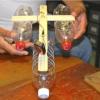
Speedboat
Source Institutions
In this activity, learners build a speedboat using paint paddles, a propeller, and film canister. Learners attach a simple circuit and motor to the boat to power the propellers.
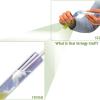
How to Extract DNA From Anything Living
Source Institutions
In this genetics activity, learners discover how to extract DNA from green split peas.

Egg Bungee
Source Institutions
Learners attach an egg to a rubber-band bungee cord and drop the egg.

CD Air Puck
Source Institutions
In this activity, learners will use a compact disc to build an air puck that can glide across a smooth tabletop. The puck glides with almost no friction on a cushion of air escaping from a balloon.

Coma Cluster of Galaxies
Source Institutions
In this activity, learners will first learn the basics of galaxy classification and grouping.

Melting Ice
Source Institutions
In this activity, learners explore density, convection, stratification, and, by inference, the melting of icebergs. Learners make hypotheses, test their hypotheses, and explain their observations.
